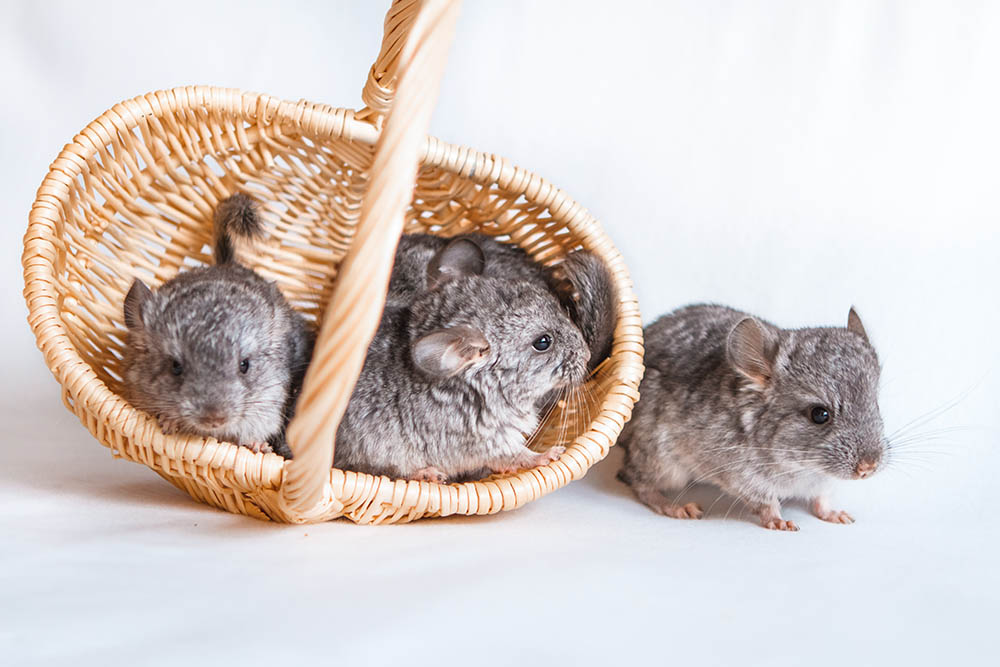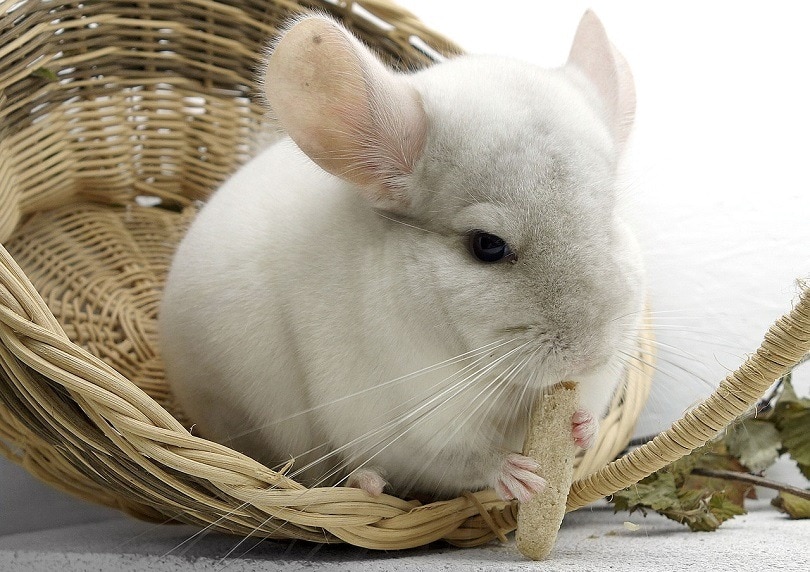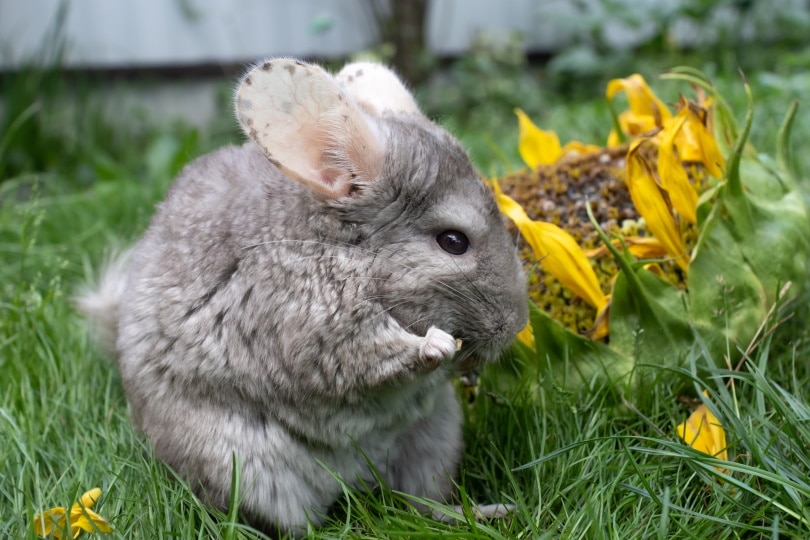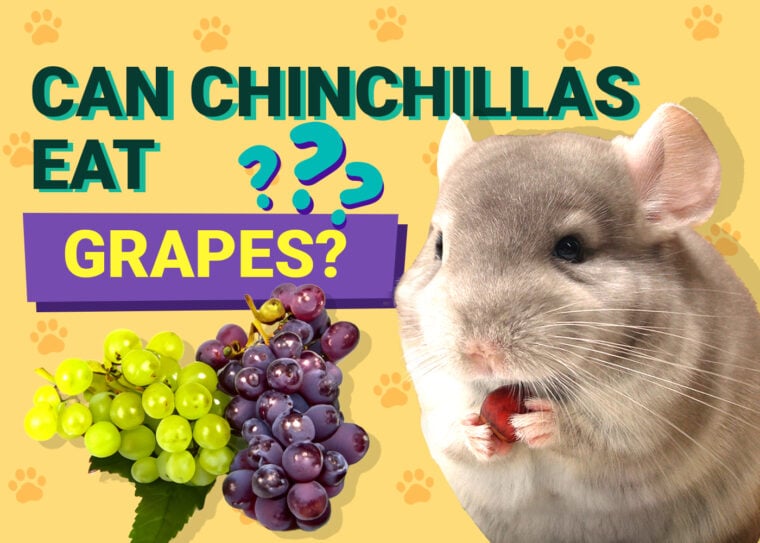
Chinchillas can be notoriously picky about what they eat, even at the best of times, and this can make it challenging to feed them a nutritious diet. In the wild, chinchillas primarily feed on various grasses, leaves, roots, and stems. They have a rather sensitive digestive system that needs a large amount of fiber to function properly. That said, they are omnivores and will eat small insects.
Wild chinchillas will also eat fruit when they get the chance, so feeding them small amounts of certain fruit in captivity is usually fine. But what about grapes? Are grapes safe to feed to your chinchilla?
Chinchillas can eat grapes, but only in strict moderation as occasional treats because the high sugar content can be harmful to them.
In this article, we look at the various risks of feeding grapes to your chinchilla. Let’s get started!
Potential Dangers of Feeding Grapes to Chinchillas
Grapes have a high sugar content, with roughly 16 grams of sugar per 100 grams of grapes. This is far too much for a chinchilla, but one grape as a treat every now and then should be fine if they seem to find it tasty.
Unfortunately, grapes are high in water and low in fiber. Chinchillas need a great deal of fiber in their diet, without which, they can suffer from potentially serious health issues like digestive problems and loose stool. This combination of low fiber and high water content in grapes can quickly cause diarrhea in your pet.
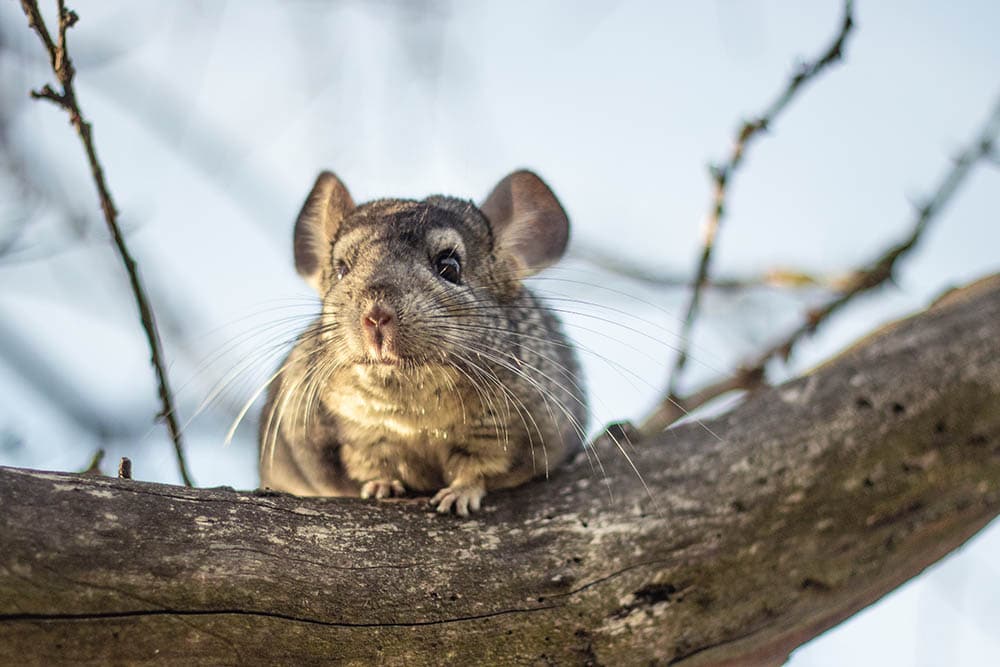
While there are nutrients in grapes that can benefit your chinchilla, they should be getting these nutrients from their normal diet of hay, so anything additional won’t be necessary. One of the most prevalent vitamins in grapes is vitamin C, which chinchillas do not need because they synthesize it themselves and don’t need to get it from food.
The final danger of feeding grapes to chinchillas is bloating. While this may not sound serious, it can swiftly be fatal in these small mammals. Your chinchilla’s digestive system is designed for grasses and other high-fiber foods, and the high sugar content of grapes is not as readily digestible, causing the fructose to ferment and cause bloating. This gas can build up quickly and potentially cause internal ruptures, leading to bleeding and infections that can prove fatal.
What About Raisins or Different Grape Varieties?
Unfortunately, the dangers of grapes are not limited to any one variety, and red or green grapes have equal potential for health problems. These varieties may differ slightly in their nutritional content, but all are high in sugar, low in fiber, and packed with water.
The same goes for raisins, though since raisins are dried out, they will have a higher concentration of sugar and lower water content.

What Fruits Are Safe for Chinchillas?
Like grapes, most fruits have high water and sugar content, so fruit is generally not ideal for chinchillas. However, they can eat dried fruits in moderation. These include pears, apples, and blueberries, all of which should ideally be dehydrated first.
What Foods Are Poisonous to Chinchillas?
It’s also important to note that certain foods should never be given to chinchillas, even in moderation. These include:
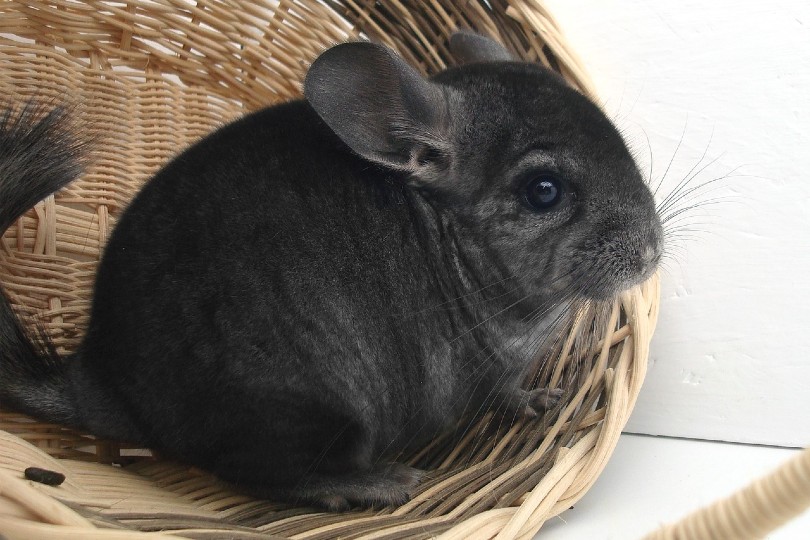
What’s the Ideal Diet for Chinchillas?
Roughly 80% of your chinchilla’s diet should consist of high-quality grass hay, such as timothy hay. Most experts recommend feeding pellets to your chinchilla, but hay should still be available to them at all times. Hay is not only full of all the nutrients that your chinchilla requires, but it also helps keep their teeth trim and healthy.
Hay should be the main diet of your chinchilla, but they can eat occasional vegetables like carrots, potatoes, and a small amount of fresh greens too. They can eat nuts and seeds as treats, but this should be in strict moderation due to the high-fat content.
Final Thoughts
While grapes are not poisonous to chinchillas, they do pose a risk to your chinchilla’s health due to their high sugar and water content, so they are best left off the menu. They can be given to your chinchilla as occasional treats, though only in small amounts. Since grapes do not offer many health benefits over their regular diet, the risk outweighs any potential benefits, and there are other ways to treat your beloved pet.
See also:
- Can Chinchillas Eat Celery? What You Need to Know
- Can Chinchillas Eat Almonds? What You Need to Know
Featured Image Credit: Benny Marty, Shutterstock


